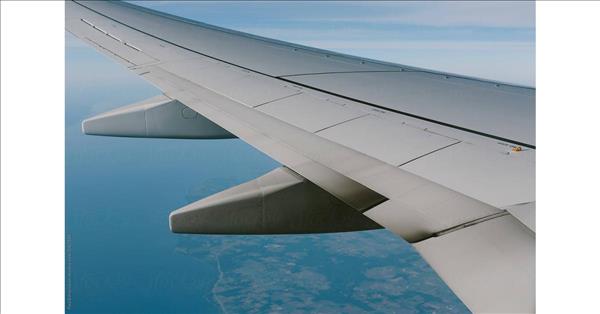(MENAFN- EIN Presswire) Commercial Aircraft Wing
OREGAON, PORTLAND, UNITED STATES , May 8, 2023 /einpresswire.com / -- The term aircraft wing refers to a form of wing that generates lift. Wings have aerodynamic forces acting on their streamlined cross sections. Wings are the most basic part of an aero plane that allows it to fly. The shape and design of an aircraft's wings have a significant impact on how it operates. The shape and design is required to generate the proper lift and streamline flow while reducing the drag and weight acting on the aircraft.
Request The Sample PDF Of This Report -
Increasing procurement of light weight composite material
Based on material analysis for aircraft wing, the market is segmented into alloys, metals and composites. This light weight composite material growth is owing to the wide usage of several metals such as aluminum, steel, and titanium, to build the structure of an aircraft wing.
including high-temperature resistant, lightweight properties, high corrosion resistance and high strength. Titanium is majorly used to build aircraft wings and landing gear, as well as fan blades. These materials are highly flexible, durable and provide higher strength to the aircraft wing. For instance, the wings of the airbus 350 XWB and the Boeing 787 are made from composite material. Composites are also used to reduce the weight of the wings and mainframe.
COVID-19 Impact analysis
The aviation industry faces some critical challenges, such as huge revenue losses during the financial year 2019-2020 owing to the international travel ban across the globe. The international air transport association published the air passenger traffic, which states that the 14.4% revenue fall of the aviation industry due to the covid-19 impact. The IATA report states that 2020 was worst year ever for air travel demand. The average global domestic air travel demand plunged by 48.7% due to the impact of Covid-19. At the time of pandemic, the Boeing were hampered due to several issues connected with the aircraft.
Segment covered - Application, Type, Platform and Region
Companies covered -
AIM Aerospace Inc., Arconic Inc., Daher Socata SAS, Denroy Plastics Ltd., Precision Castparts Corp., Premium Aerotec, Spirit Aerosystems Inc., Stroco Manufacturing Inc., Tri-Mack Plastics Manufacturing Corporation, Triumph Group Inc.
Procure Complete Research Report Now -
Improved aircraft stability
Aircraft wings are designed with positive static stability to support dynamic stability. More stable in right turns due to left turning tendencies. Aircraft wing axis are imaginary lines passing through the aircraft. Longitudinal axis ensures stability along the longitudinal axis from the nose to the tail through the fuselage. Lateral axis ensures stability from wing tip to wing tip. Vertical axis of wing ensures stability through the center of the fuselage, from the top to the bottom.
For instance, the Boeing 777 uses redundant digital flight control computers to provide positive (static longitudinal) stability and enhances that stability with airspeed feedback. The MD-11 uses computers to provide neutral speed stability. In other words, the CG of the MD-11 appears to be at the neutral point. The MD-11 uses elevator deflection to hold attitude at any speed within the normal flight envelope, then trims the stabilizer.
By Application
Passenger aircraft
Corporate jets
Freighter
By Type
Swept Back Wing
Delta Wing
Straight Wing
Enquire Before Purchasing This Report -
Regions covered
North America (U.S., Canada, and Mexico), Europe (Germany, France, UK, Italy, and Rest of Europe), Asia-Pacific (China, Japan, India, South Korea, and Rest of Asia-Pacific), and LAMEA (Latin America, Middle East, and Africa)
David Correa
Allied Analytics LLP
+1-800-792-5285
email us here
Visit us on social media:
facebook
twitter
linkedin




















Comments
No comment